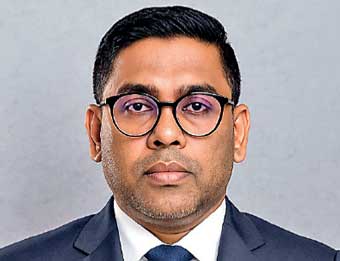Wednesday Feb 18, 2026
Wednesday Feb 18, 2026
Monday, 17 November 2025 00:00 - - {{hitsCtrl.values.hits}}

 |
| CUBA Industry Sub-Committee Chairman M.R. Jeffrey |
Ceylon United Business Alliance (CUBA) Industry Sub-Committee Chairman and former KPMG Ford, Rhodes, Thornton & Co., Statutory Auditor M.R. Jeffrey has warned that Sri Lanka should not dismantle tariffs or para-tariffs under the Economic Stabilisation Act, No. 45 of 2024 until the nation’s foreign exchange reserves reach a sustainable and safe threshold.
Jeffrey noted that while the Act aims to modernise tariff structures and create a transparent system, it was not binding unless regional countries adopt the same framework. “Sri Lanka must avoid unilateral liberalisation when neighbouring economies maintain strong protective environments,” he argued.“We are still operating under severe forex pressures. Removing protective duties without adequate reserves will invite a surge of cheap imports, weaken the rupee, and undermine the very industries we are trying to revive,” Jeffrey said.
He highlighted Sri Lanka’s rights under World Trade Organisation (WTO) Article XXVIII and the principle of Common But Differentiated Responsibilities (CBDR), which allows developing economies to liberalise gradually and strategically, rather than at the accelerated pace expected of wealthier nations.
Jeffrey also addressed longstanding distortions in Sri Lanka’s tariff policy. He stated that earlier regimes implemented selective para-tariff protection that favoured politically connected sectors, such as tiles, aluminium, and hardware, which enjoyed extremely high para-tariffs.
In contrast, one of Sri Lanka’s largest domestic consumption sectors, clothing, worth over $ 2 billion annually, remained severely under-protected. For example, imported denim fabric faced only a Rs. 200 para-tariff per metre, despite local capability to manufacture it competitively. Jeffrey described this as a major structural imbalance that distorted market competition, disadvantaged local manufacturers, and incentivised import-heavy business models.
He added that Sri Lanka’s para-tariff bands lack uniformity.
While most countries maintain a fair protection range of 25-35%, Sri Lanka’s structure is extremely uneven: Hardware and building materials face 40-75% para-tariffs; clothing faces only 5-10%.
“This disparity is economically indefensible and must be corrected immediately. We cannot continue a system where some industries are overprotected for political reasons while others are left to collapse. The selective para-tariff structure of previous regimes must end. A balanced, transparent, and rational protection framework is the only way forward.”
Jeffrey urged policymakers to introduce WTO-compliant non-tariff barriers, including quality standards, licencing requirements, and safeguard clauses, ensuring protection without breaching international obligations. He recommended linking tariff liberalisation to a clear foreign reserve threshold: “Economic sovereignty begins with economic stability.”
The CUBA Industry Sub-Committee advocates for domestic manufacturing competitiveness and evidence-based economic reforms across apparel, footwear, industrial materials, and allied sectors.